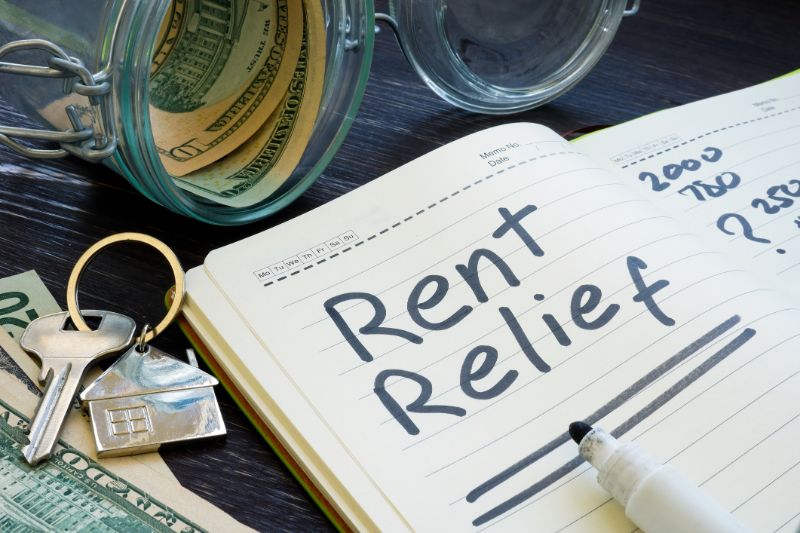
The Golden State’s sunny weather, clear skies, top-value luxury real estate and investment properties, with many situated along the curve of the Pacific Ocean, have long attracted dreamers of all kinds with the promise of a good life. However, California has been experiencing a steady decline in population growth these past few years because the limited real estate inventory has resulted in a housing crisis.
In an effort to turn this on its head, new real estate laws in California are being implemented this 2022. Read on for our breakdown of the new set of bills to support California residents as its leaders work to address the shortage in real estate inventory.
Table of Contents
The housing crisis in California

With limited inventory, California has become a massive seller’s market over the last few years. The demand from buyers moving to the sunny state hasn’t abated, but the lack of supply has resulted in record-breaking home prices.
At the start of 2022, the California Association of Realtors (C.A.R.) noted that the average price of property in the main areas of California has risen by double digits. San Francisco experienced a 14.3% year-over-year price increase, with home median prices at $1.2 million. The Los Angeles metropolitan area saw an 11.1% year-over-year increase, with median prices at $700,000. Southern California had a 13.8% year-over-year increase, with homes at a median price of $740,000.
While this is good news for California homeowners, it’s been a challenge for people looking to move to the state. California residents themselves have had to contend with the state’s cost of living, encouraging locals to move out of state. In 2020, for the first time ever, California had 182,083 fewer people than before; in 2021, the population declined by another 173,000.
And yet, despite property prices, California real estate continues to be in high demand as seen in the number of closed sales. New real estate laws are expected to help California recover from its housing crisis.
An overview of California’s 2022 real estate laws

Real estate laws guide the manner in which real estate is owned and managed. They apply within the state (local) or across the US (federal). With new laws approved in 2021 and going into effect in 2022, California is hoping laws enacted to mitigate the housing crisis work as intended.
Dozens of these new laws follow the California Housing Opportunity and More Efficiency Act introduced by State Senator Toni Atkins and approved last September 16, 2021.
New provisions have loosened zoning restrictions and now permit greater housing density in an effort to introduce more housing options in the state.
The overall goal is to create more affordable residential real estate, while also increasing inventory through proposed housing developments that allow owners to erect additional housing units on their property. In conjunction with local ordinances, homeowners and property owners can build duplexes or subdivide their residential lots, which they can then lease out to generate income.
With the Fair Employment and Housing Act (FEHA) and the Unruh Civil Rights Act, the two primary fair housing laws in California, residents are also protected from discrimination by business establishments, including housing and public accommodations.
The new state laws being put to effect in 2022 are meant to provide further legal remedies against discrimination while alleviating the state’s housing shortage.
New Assembly Bills

The following are the new assembly bills passed as California’s new real estate laws for 2022. Many of them amend existing sections and improve current statutes, which should encourage people to move to or stay in California as the state puts measures in place to bolster its housing inventory.
Changes, modifications, and new requirements
This bill requires the Department of Real Estate (DRE) to collect information about military, veteran, and spouse license applications, including the number of expedited license applications, the number of expedited licenses issued and denied per calendar year, and the average length of time between application and expedited license issuance. The DRE is mandated to submit an annual report to the Legislature.
This bill allows homeowners’ associations (HOAs) regardless of size to elect by acclamation candidates for the board of directors, if the number of candidates is no greater than the number of vacancies. To do so, the HOA will have to meet increased noticing provisions, have held a regular election in the past three years, confirmed receipt of a candidate nomination, and provided a disqualified nominee the opportunity to appeal. The HOA board must also consider the vote by acclamation at a meeting where the agenda includes the name of each candidate to be elected in that manner.
This bill allows real estate licensees who change their legal surname from the name under which the license was originally issued to continue to use their former surname for business purposes. The bill also points out that the former last name does not constitute a fictitious name prohibited under real estate law. The licensee must file both the new and previous name with DRE.
This bill follows up on the Rental Housing Recovery Act, building on previous legislation to keep tenants housed during the recovery from the 2020 recession and COVID-19 pandemic. It extended a temporary moratorium on tenant eviction due to nonpayment of rent, which was prevalent in the period of March 2020 and September 2021 when renters faced unemployment and financial challenges as a result of the pandemic. At the end of the moratorium, landlords may sue their tenants for unpaid rent due between March 1, 2020 and September 30, 2021 in small claims court starting March 1, 2022.
This bill will go into effect on July 1, 2022. It requires a city or a county to inspect a property if it receives a complaint about lead hazards or substandard living conditions. Upon inspection, authorities will notify the property owner of violations and required remedies, after which they will re-inspect the property for compliance at a later date. AB 838 also makes clear that an inspection cannot be conditioned on a tenant being current on rent or other factors. Inspection fees cannot be charged, unless substandard conditions or lead hazards are found.
This bill creates the Fair Appraisal Act. One of its provisions states that every sales contract for real property made after July 1, 2022 must include a notice stating that the property appraisal of the property must be unbiased, objective, and not influenced by specific factors, including race, color, religion, gender, sexual orientation, marital status, medical condition, military or veteran status, national origin, source of income, ancestry, disability, genetic information, or age. The notice will also include information on actions a buyer or seller can take if they believe an appraisal has been affected. The Department of Real Estate licensees, among others, will be required to provide the same notice when it comes to refinancing residential real estate property of up to four units.
This bill modifies current financial practices and insurance requirements for homeowners associations (HOAs) in common interest developments. The bill prevents managing agents from investing HOA funds in stocks or high-risk investments and removes the ability to co-mingle funds, among other provisions. The bill also requires HOAs and their managing agents to maintain crime insurance, employee dishonesty insurance, and fidelity bond coverage or their equivalents.
This bill amends the Restrictive Covenant Modification process. Changes include increasing the types of people and entities that can request a modification, expanding current notices to include information on how to request a modification, and requiring that professionals involved in property sales inform buyers and sellers about an existing restrictive covenant and increasing their duty to assist in filing a modification. In addition, the bill creates a new $2 fee on real estate instruments subject to the SB 2 (Atkins, Chapter 364, Statues of 2017) recording fee to fund redaction work.
Implications
These amendments aim to protect homeowners as properties shift from single-family residences to duplexes and more, while upholding the fair housing laws present in the state. While these may seem like a lot of changes, most of these bills enhance existing laws to help support landowners as residences become denser in the state.
New Senate Bills

Below are the senate bills in California applicable this 2022, new real estate laws to support its recovery from the current housing shortage. These also address short-term rentals, which pose a challenge to communities fostering long-term resident retention.
Changes, modifications, and new requirements
This bill defines what local agencies can and cannot require in approving construction of two residential units on a single lot, or a single-family residence and an accessory dwelling unit (ADU). This new law requires a proposed housing development of two residential units within a single-family residential zone to be considered without discretionary review or hearing, as long as the proposed housing development meets the requirements. One of the requirements states that a proposed housing development does not need to demolish or alter low- or moderate-income housing.
This bill authorizes local governments to zone any parcel of land for up to 10 units of residential density when the property is located in a transit-rich area, a jobs-rich area, or an urban infill site.
This bill raises the maximum rates of fines for violating any ordinance relating to a residential short-term rental that may pose a threat to health and safety. Violators may be charged from $100 to $1,500 for a first violation, from $200 to $3,000 for a second violation of the same ordinance within one year, and from $500 to $5,000 for each additional violation of the same ordinance within one year of the first violation.
This bill authorizes the use of federal funds to cover 80% of the back rent accumulated by low-income tenants from April 1, 2020 through March 31, 2021. Following this, landlords are required to forgive the remaining 20% of rent owed by their tenants.
Beginning January 1, 2023, this bill will modify the content of two courses required of real estate salespersons or brokers taking their licensing exam. The real estate course will include a discussion on implicit bias and an understanding of federal and state fair housing. Under the bill, the continuing education course for salespersons and brokers will require them to participate in an interactive component and view a new, two-hour implicit bias continuing education course.
This bill permits the covenants, conditions, and restrictions (CC&Rs) of a senior citizen housing development to establish intergenerational housing. This means that age-restricted communities can now allow caregivers who do not meet the age requirement, including transitional age youths, to live within the development. However, 80% of the occupied dwelling units in the community should belong to the restricted age group.
This bill extends the end date for both the Department of Real Estate and the Bureau of Real Estate Appraisers to January 1, 2026. The measure also allows the Department of Real Estate to use debarment notices issued by sister agencies as grounds for action, codifies the current policy of expediting license applications for veterans and partners of members of the Armed Forces, and clarifies the definition of a real estate license in good standing.
Implications
These new laws amend many prior statutes. They include definitions and limitations on housing developments, education on fair housing, stipulations on senior citizen housing, and more.
How do the new state laws apply to Culver City, CA?

These new state laws can be a challenge especially when it affects local ordinances. It’s best to consult with a real estate professional specializing in Culver City real estate. If you’re looking for real estate investment opportunities in Culver City, you can get in touch with me, Martin Feinberg. I can explain how state and local real estate laws impact the area you want to invest in and the property you wish to buy – and offer solutions, if needed, that are fair and beneficial to all. Call 310.729.6573, send me an email at martin(at)martinfeinberg(dotted)com, or contact me here.
What the new laws mean for real estate market trends

With the loosening of zoning laws, California homeowners are free and encouraged to rebuild and upgrade their properties. The promise of new and affordable housing has the potential to attract new residents to the state. For homeowners, it means income opportunities from their real estate investments.
If more Californians take advantage of the new statutes, they may eventually arrest the decline in the state’s population.
With more affordable housing options, it is hoped that the high prices that have been driving people away will stabilize and eventually level off. Aside from easing the challenges of finding an affordable home, new residents can invest in their own properties in the future and profit from the promise that California is, was, and always will be the Land of Opportunity.
How a Culver City, CA real estate professional can help
If there’s ever been a time to invest in California real estate, now is a good time. Changes in California state laws make it an exciting moment to power through and forge ahead.
And if you’re thinking of upgrading your California home, consider turning your property from a single-family home to multiple residences. Or move to a place with the space to build your multi-family units.
Whether you’re buying California property for the first time or not, reach out to a local real estate professional and property management veteran like me, Martin Feinberg.
With 32 years of experience in Culver City real estate, I am well versed in residential and residential income property sales, as well as full-service property management. Get the best professional guidance for all your California real estate concerns.
The benefit of working with a full-service property management company when shifting from being a homeowner to being a landlord means handing over the day-to-day stresses of running your rental to a professional. For inquiries, call me at 310.729.6573, send an email to martin(at)martinfeinberg(dotted)com, or contact me here. Get started on your real estate investing journey today!